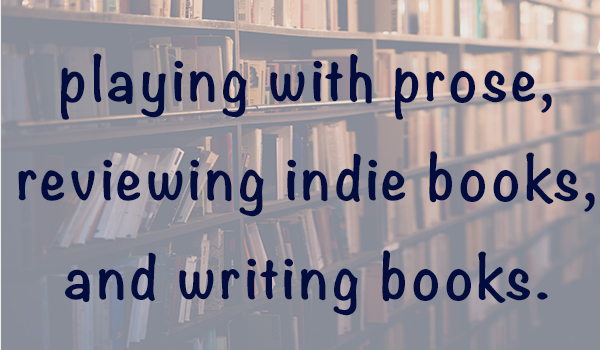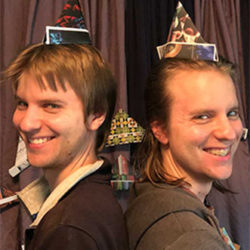
#15 Lord of the Abyss
Blog 15
Greeting you myopic monsoons, today we have a piece from Irjikor on DeviantArt.
Where to start…? Gods, where to start? Haha… Gods… Puny things… I have seen them pray to more gods than there are people on this world. And what do they do? Nothing! Every so-called god is nothing more than a mixture of three parts. That’s it. Might have something to do with the trifold nature of creation… who knows? But I’m rambling again.
Anyways, the gods. Every so-called god I’ve seen was a combination of the next stupid backstory, with a balance of these three core essences. Life… Death… and that last bit. Deep down, everyone knows it, but few consciously know it. Life and Death are easy. They are most visible in the world. In this world, you live, then you die and go to the next world. But so many forget that other world, that one in between. That one, that is a part of both. The one where everyone must go through and some linger.
A name? Oh yes, it does have a name. Plenty, even. Hell… Limbo… But I call it by this name:
The Abyss…
This is a complicated paragraph to edit, being both first-person and intentionally rambling so many of my habitual practices aren’t applicable. Let’s begin with that first series of sentences.
Here, I would change the beginning, deleting that first question mark (which here serves as a hard stop and thus disrupts the ruminating tone) and combining the two ‘where to start’ into once sentence.— Where to start…where to start…Gods…heh, Gods, puny things…— I moved gods to after the ‘where to start’ because when it leads the second iteration it sounds like an exclamation, which doesn’t fit the narrator’s opinion on gods. At the end, it feels more absent-mined, but also changes the sentences so there’s no interruption between the first mention of ‘gods’ and the transition into the narrator’s discussion of them. That last part is (in my opinion) deceptively important, it changes the rumination into a smooth progression of thoughts, each leading to the other instead of bouncing back and forth without purpose. I also switched to a ‘heh’ as opposed to ‘haha’ because that’s a softer laugh, more of an absentminded chuckle (which again fits the ruminating tone) as opposed to a full laugh, which is what ‘haha’ indicates.
Continuing from there, I would delete the ‘I have seen.’ Locating this opinion from the narrator’s physical perspective is unnecessary, we will naturally assume it’s his because he’s the one conveying it. Instead, just do —They’ve prayed to more gods…— That aside, I don’t like the ambiguity of ‘they/them’ here, I assume they mean ‘humans’ but this is fantasy so it could mean just about anything. Saying ‘humans’ orients the readers and connects them on a more emotional level to the narrator’s dialogue, because we are the humans he’s discussing.—…Gods…puny things. Humans have prayed to more gods than there are people on this world, and for what? Nothing.—
I combined the sentences because the author introduced this section as being about gods, but the first sentence of it is about humans. Combining the sentences emphasizes the relation between human and gods to soften segue into humans and make it more immediately relevant.
Section 2: Every so-called god is nothing more than a mixture of three parts. That’s it. Might have something to do with the trifold nature of creation… who knows.
Here, we do have a few simple cuts. ‘Nothing more than’ can be reduced to ‘just,’ and ‘might have something to do with the trifold nature of creation’ can be reduced to ‘might be related to creation’s trifold nature.’ Those aside, the section struggles with a bigger problem in that it lacks narrative progression/cohesion. The two main sentences don’t feel like they complement one another, and the ‘that’s it’ exacerbates this by interrupting them. So, I would delete ‘that’s it’ and combine the sentences with a bridge word. —Every god is just a mixture of three elements, probably as a reflection on creation’s trifold nature… who knows.— (I really don’t like the ‘who knows’ it’s opened ended and vague, which screams at me because most of this section is so assertive, the narrator is confident only to trail off and waffle around. I want to change it to something more like —but that’s just supposition/theory— which maintains their ignorance but at least owns it.) I switched to ‘elements’ because I felt it read better.
Section 3: But I’m rambling again.
Anyways, the gods. Every so-called god I’ve seen was a combination of the next stupid backstory, with a balance of these three core essences. Life… Death… and that last bit.
Here, I would delete the first ‘the gods’ and combine the sentences. He didn’t embark on a huge tangent and thus needs to recall his subject matter, so reorienting himself here is pointless. After that, I would delete ‘I’ve seen’ for the same reason as above (and it should be noted that I dislike using the same verbiage here as above to reintroduce the topic. The author is only repeating himself needlessly. That’s almost entirely the fault of his narrative sojourn, which doesn’t even have to be a sojourn if you combine the sentences above as I did.) The phrase “of the next stupid backstory’ is vague and I’m uncertain as to the author’s intent. I think it’s just a different way of saying ‘of some stupid backstory’ but that’s just a guess. I think we can also replace ‘with a balance of ‘ with ‘and.’ —Anyways, every so-called god was a combination of some stupid backstory and these three core essences: life, death and that last bit.— inserted colon because that is the proper punctuation and switched from ellipses to commas because our narrator is neither senile nor on a stage entertaining where dramatic timing is an asset.
My unauthorized rewrite: — Every god is just a mixture of three elements, probably as a reflection on creation’s trifold nature: Life, Death and that last bit. Oh, and some insipid backstory…—
Section 4: Deep down, everyone knows it, but few consciously know it. Life and Death are easy. They are most visible in the world. In this world, you live, then you die and go to the next world. But so many forget that other world, that one in between. That one, that is a part of both. The one where everyone must go through and some linger.
For the first sentence, I would like to excise the double ‘know it’ and I think this is achievable with —Everyone knows it deep down, but only few consciously.— Next, combine the subsequent three sentences since they’re all discussing the life and death aspect. I would also like to reduce the mentions of ‘world’ since they seem excessive. We should be able to reorder this section so we only have to mention it once. Something like —Life and Death are easily visible in this world, you live, then you die and go to the next world.— (I would like to get away with ‘pass on’ instead of ‘go to the next world’ for the fewer words and removal of ‘world,’ but it may not work.) Another, more liberal interpretation could be—Life and Death are evident, people experience both intimately before passing on— It should be noted that ‘easy’ in the original is a little ambiguous; what about them is easy as opposed to the Abyss or in general?
I would combine the rest of this section into one sentence. These are a progression of thoughts, not a series of individual concepts. — But so many forget that other world, the one in-between, that is a part of both, which everyone traverses and where some linger.— I switched to ‘the’ to add variety from the ‘that’ and to ‘traversed’ because it’s one word as opposed to 2/3. (I also think it reads better, but sshh, don’t tell anyone.)
Section 5: A name? Oh yes, it does have a name. Plenty, even. Hell… Limbo… But I call it by this name:
The Abyss…
Just a few small changes to wrap up. ‘but I call it by this name’ to ‘But I use this name’ for the fewer words. And delete that last paragraph break, there is no point in it with the colon. It is also grammatically incorrect because of the colon.
All edits applied:
Where to start…where to start…Gods…heh, Gods, puny things… Humans have prayed to more gods than there are people on this world, and for what? Nothing. Every god is just a mixture of three elements, probably a reflection of creation’s trifold nature… who knows. But I’m rambling again.
Anyways, every so-called god was a combination of some stupid backstory and these three core essences: Life, Death and that last bit. Everyone knows it deep down, but only few consciously. Life and Death are easily visible in this world, you live, then you die and go to the next. But so many forget that other world, the one in-between, that is a part of both, which everyone traverses and where some linger.
A name? Oh yes, it does have a name. Plenty, even. Hell… Limbo… But I use this name: The Abyss…
My clandestine edits:
Where to start…where to start…Gods…heh, Gods, puny things… Humans have prayed to more gods than there are people on this world, and for what? Nothing. Every god is just a mixture of three elements, probably a reflection of creation’s trifold nature: Life, Death and that last bit. Oh, and some insipid backstory.
Everyone knows this deep down, but only a few consciously. Life and Death are evident, people experience both intimately before passing on. But so many forget that other world, the one in-between, that is a part of both, which everyone must traverse, and some linger. It has many names, Hell…Limbo…Hades, but I prefer: The Abyss.
This has a few extra changes, the first being ‘everyone knows it’ to ‘everyone knows THIS’ because ‘this’ is more personal and that feels more appropriate for something everybody knows instinctively. I’m not entirely sure of the ‘Oh, a name…’ to ‘It has many names…’ since cutting out the precursor emphasizes the cliché.
That’ll be all though. I wish you languishing lollipops the best of luck. If you like our content, consider subscribing. If you like what you’ve read here, check out the Author’s continuation on DeviantArt. https://www.deviantart.com/irjikor/art/LORD-OF-THE-ABYSS-part-1-696295586

